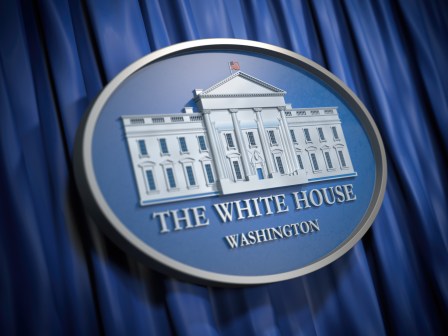 Defense Secretary Leon E. Panetta discusses sequestration with audience members during the Association of Defense Communities’ annual conference in Monterey, Calif., Aug. 6, 2012. (Photo: DOD/U.S. Navy Petty Officer 1st Class Chad J. McNeeley)
Defense Secretary Leon E. Panetta discusses sequestration with audience members during the Association of Defense Communities’ annual conference in Monterey, Calif., Aug. 6, 2012. (Photo: DOD/U.S. Navy Petty Officer 1st Class Chad J. McNeeley)“Sequestration” is the big buzzword being thrown around these days, so to help better understand the issue, FedScoop created a short guide to summarize its impact on the federal government.
Origin
The term sequestration, as its known in the federal government, was created by the Gramm-Rudman-Hollings Balanced Budget Act of 1985. It called for automatic-spending cuts – called sequesters – to be made if the federal budget deficit exceeded a set of fixed deficit targets.
Today
In an effort to end the debt-ceiling crisis in August 2011, legislators created the Budget Control Act of 2011. The bill included a provision that if Congress failed to produce a deficit reduction bill for the federal government with at least $1.2 trillion in cuts, then it would trigger automatic across-the-board cuts called sequestrations. Congress has until November to pass the necessary legislations or the cuts must be enacted shortly after the start of 2013 with $110 billion coming off the books immediately.
Where the cuts would take place
The mandatory cuts would be split between national security and non-national security agencies evenly, so both would absorb $600 billion each in cuts as a whole and $55 billion in the coming year. These would be added to the $450 billion in cuts that the Defense Department has already announced for the next decade.
Who it could affect
Basically, everyone in the federal government and those that do work supporting the government. Federal agencies will see drastic cuts that will likely lead to large layoffs, pay freezes and the reduction of benefits. Government contractors will have less money to bid for and – in some cases – be forced to remove workers from job sites as the government will no longer be able to pay for their services.
According to the Associated Press, separate studies this summer by the International Monetary Fund and by George Mason University predict that the approach to budget reduction under sequestration would slam the nation’s economy back into a recession and boost the unemployment rate nationally by 1.5 percent by next summer and have a much larger effect in the Washington, D.C. area.
Video
Virginia Congressman Scott Rigell, whose Hampton Roads district, would be significantly hit by sequestration, explains the measure in this video:
Quotable
Secretary of Defense Leon Panetta:
“I’ve made clear, and I’ll continue to do so, that if sequestration is allowed to go into effect, it’ll be a disaster for national defense and it would be a disaster, frankly, for defense communities as well. And frankly, it’s not only true about the DOD budget, it’s also true relating to the domestic discretionary cuts that will deprive communities of the needed federal support they need in areas like education.”
Will it happen?
It’s not certain either way, but probably not. As written, sequestration is meant to be harsh to act as a catalyst for Congress to come up with a better plan and is instead a fail-safe measure to get the necessary cuts one way or another.
With that said, sequestration is the law and if Congress doesn’t come up with a solution, it will become a reality.





